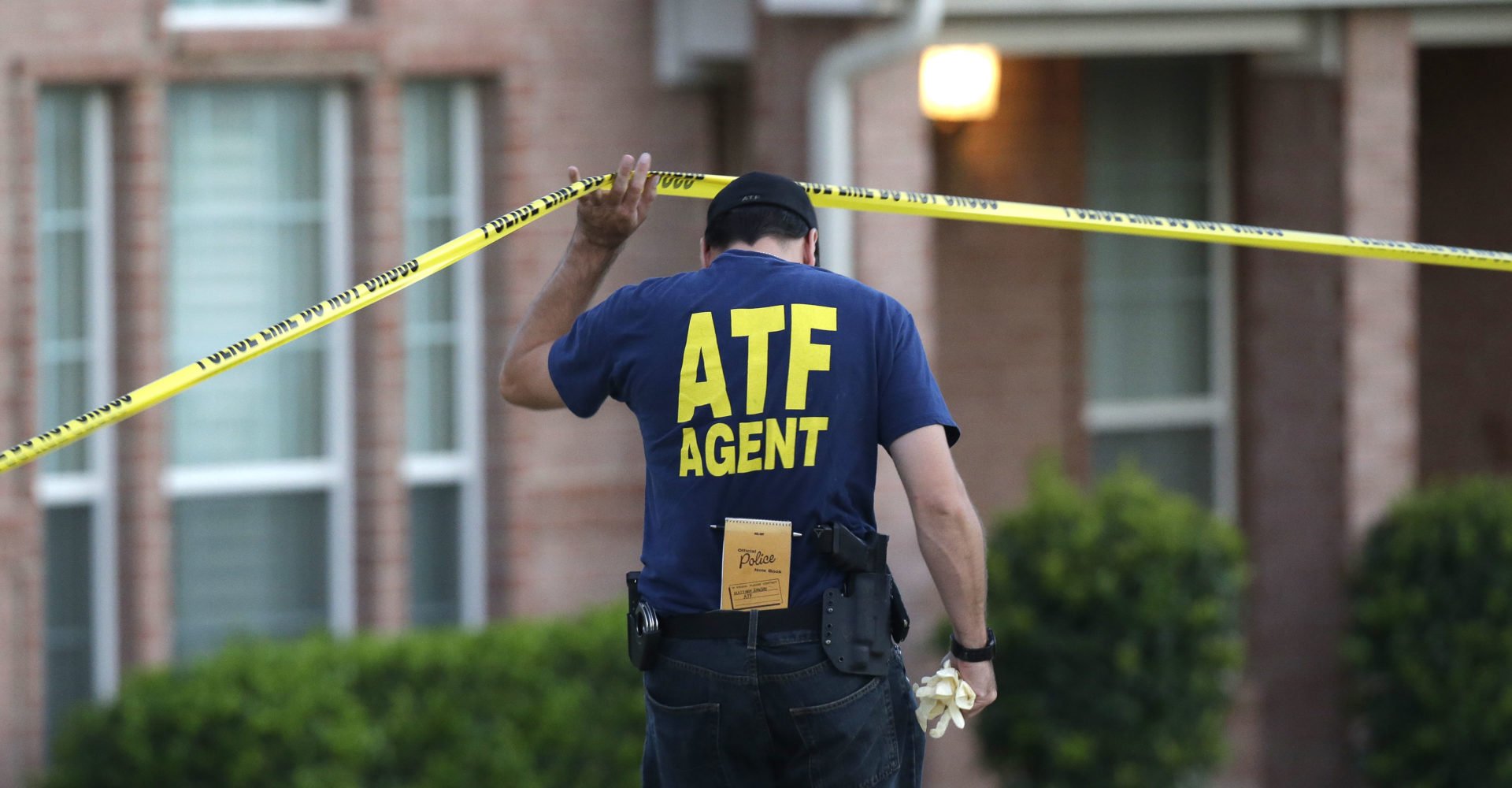ATF, or Alcohol, Tobacco, Firearms, and Explosives, is a federal law enforcement agency within the United States Department of Justice. Established to combat illegal activities involving alcohol, tobacco, firearms, and explosives, ATF plays a critical role in ensuring public safety. With a mission to protect communities from violent crime, illegal firearms trafficking, and the unlawful use of explosives, ATF has become a cornerstone of national security efforts. This agency not only enforces laws but also collaborates with other law enforcement entities to prevent terrorism and reduce violent crime across the nation.
As part of its mandate, ATF investigates and prosecutes violations related to the production, distribution, and sale of alcohol and tobacco products. Additionally, it focuses on regulating firearms and explosives, ensuring that these items are used responsibly and legally. Through its enforcement efforts, ATF aims to disrupt criminal organizations and networks engaged in illegal activities. This article delves into the history, functions, and significance of ATF, providing readers with a deeper understanding of its role in maintaining public safety.
By examining the evolution of ATF and its regulatory framework, we can better appreciate the challenges faced by this agency in fulfilling its mission. From combating illegal firearms trafficking to addressing the growing issue of violent crime, ATF continues to adapt to new threats and technologies. As we explore the intricacies of ATF's operations, it becomes clear that its work is vital in safeguarding communities and protecting the rights of law-abiding citizens. Let's dive deeper into the world of ATF to uncover what it truly entails.
Read also:Discover The Culinary Haven At Javiers Los Angeles Restaurant
What is ATF and Why Does It Matter?
In today's world, where public safety is a top priority, ATF's role cannot be overstated. The agency's primary responsibility is to enforce federal laws related to alcohol, tobacco, firearms, and explosives. By doing so, ATF helps to create safer communities and reduce the incidence of violent crime. Its efforts have led to the dismantling of numerous criminal organizations and the seizure of illegal firearms and explosives. As we explore what is ATF, we will uncover the various ways in which this agency contributes to national security.
How Does ATF Function?
ATF operates through a network of field divisions and specialized teams, each focusing on specific areas of enforcement. These teams work together to investigate and prosecute violations of federal laws, ensuring that justice is served. ATF agents undergo rigorous training to prepare them for the challenges they face in the field. By leveraging cutting-edge technology and collaborating with other law enforcement agencies, ATF continues to enhance its capabilities and effectiveness. Understanding what is ATF involves recognizing the importance of its operational structure and the dedication of its agents.
What Are the Key Responsibilities of ATF?
- Enforcing federal laws related to alcohol, tobacco, firearms, and explosives
- Investigating and prosecuting violations of these laws
- Regulating the production, distribution, and sale of alcohol and tobacco products
- Combatting illegal firearms trafficking and the unlawful use of explosives
ATF's key responsibilities are rooted in its mission to protect communities and uphold the rule of law. By focusing on these areas, ATF ensures that illegal activities are deterred and that public safety is prioritized. As we delve deeper into what is ATF, we will examine the specific ways in which the agency fulfills its responsibilities and the impact it has on society.
What Challenges Does ATF Face Today?
In an ever-evolving landscape of crime and technology, ATF faces numerous challenges in carrying out its mission. From combating organized crime to addressing the rise of cybercrime, ATF must continuously adapt to new threats. Additionally, the agency must navigate complex legal and regulatory frameworks while maintaining transparency and accountability. These challenges highlight the importance of ATF's role in protecting public safety and enforcing federal laws. Understanding what is ATF involves recognizing the obstacles it encounters and the strategies it employs to overcome them.
What is ATF's Role in Combating Violent Crime?
ATF plays a crucial role in reducing violent crime by targeting criminal organizations and networks engaged in illegal activities. Through its enforcement efforts, ATF disrupts these groups and prevents them from causing harm to communities. By working closely with local, state, and federal law enforcement agencies, ATF amplifies its impact and enhances its ability to combat violent crime. Understanding what is ATF requires acknowledging its commitment to creating safer communities and protecting the rights of law-abiding citizens.
How Does ATF Regulate Firearms and Explosives?
ATF regulates firearms and explosives by establishing and enforcing strict guidelines for their production, distribution, and use. This includes conducting inspections, issuing licenses, and monitoring compliance with federal laws. By ensuring that these items are used responsibly and legally, ATF helps to prevent accidents and reduce the incidence of violent crime. As we explore what is ATF, we will examine the specific measures it takes to regulate firearms and explosives and the importance of these efforts in maintaining public safety.
Read also:Unveiling The Essence Of Frontier Personal Items A Journey Through Time
ATF's Historical Evolution
ATF's origins can be traced back to the Revenue Act of 1862, which established the Office of Internal Revenue to enforce alcohol and tobacco taxes. Over the years, ATF has undergone several transformations, expanding its scope and responsibilities to address emerging threats. Today, ATF stands as a leading federal law enforcement agency, dedicated to protecting public safety and upholding the rule of law. Understanding what is ATF involves recognizing its historical evolution and the factors that have shaped its current form.
What is ATF's Role in National Security?
ATF plays a vital role in national security by addressing threats related to alcohol, tobacco, firearms, and explosives. Through its enforcement efforts, ATF helps to prevent terrorism and reduce the incidence of violent crime. By collaborating with other law enforcement agencies and leveraging cutting-edge technology, ATF enhances its capabilities and effectiveness in safeguarding the nation. Understanding what is ATF requires recognizing its contribution to national security and the importance of its work in protecting the public.
What Are the Future Directions for ATF?
As ATF continues to evolve, it faces new challenges and opportunities in fulfilling its mission. By embracing emerging technologies and adapting to changing threats, ATF can enhance its ability to protect public safety and enforce federal laws. Additionally, by fostering collaboration and promoting transparency, ATF can strengthen its relationship with the communities it serves. Understanding what is ATF involves recognizing its potential for growth and the ways in which it can continue to make a positive impact on society.
Conclusion: The Importance of ATF
In conclusion, ATF is a vital federal law enforcement agency that plays a crucial role in protecting public safety and upholding the rule of law. By enforcing federal laws related to alcohol, tobacco, firearms, and explosives, ATF helps to create safer communities and reduce the incidence of violent crime. As we have explored what is ATF, we have uncovered the agency's history, functions, and significance in maintaining public safety. Moving forward, ATF's continued evolution and adaptation will be essential in addressing new challenges and ensuring the protection of all citizens.
Table of Contents
- What is ATF and Why Does It Matter?
- How Does ATF Function?
- What Are the Key Responsibilities of ATF?
- What Challenges Does ATF Face Today?
- What is ATF's Role in Combating Violent Crime?
- How Does ATF Regulate Firearms and Explosives?
- ATF's Historical Evolution
- What is ATF's Role in National Security?
- What Are the Future Directions for ATF?
- Conclusion: The Importance of ATF


